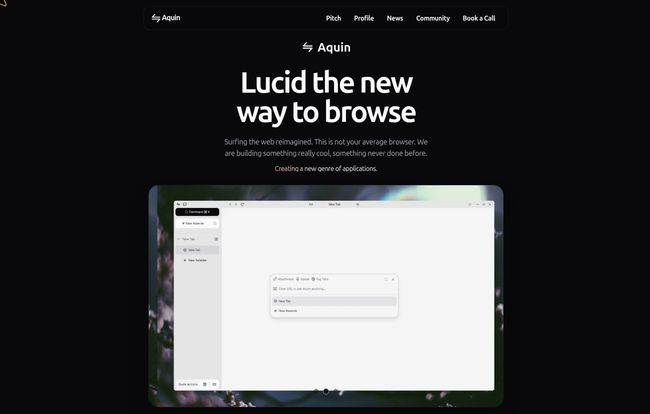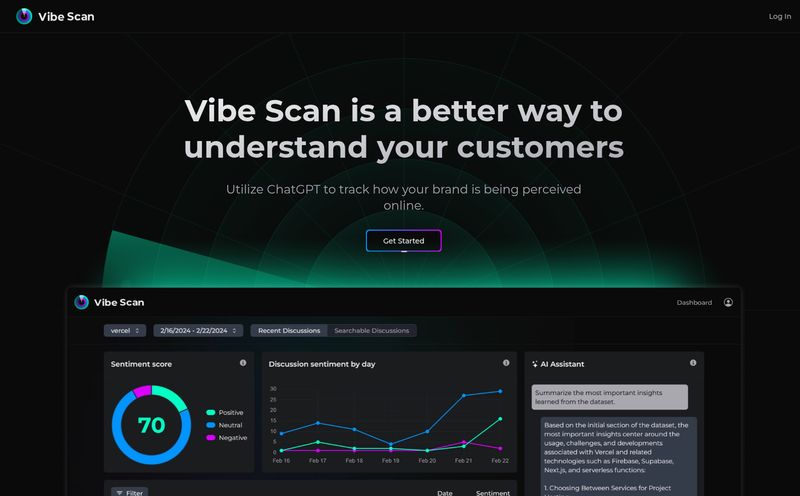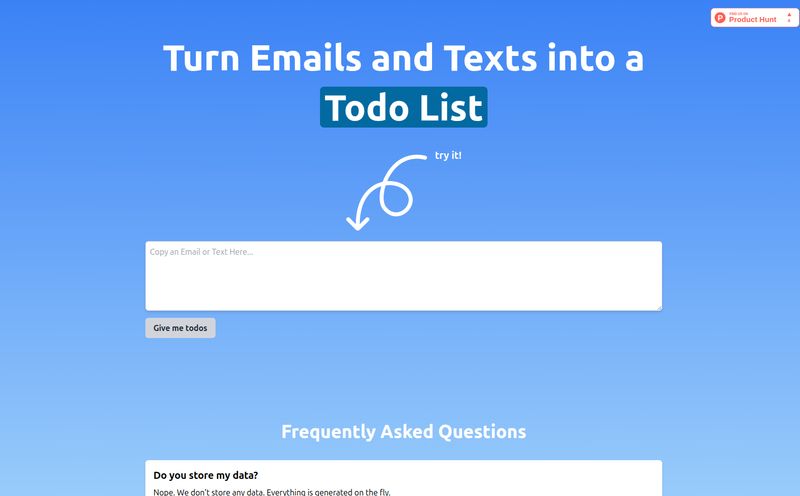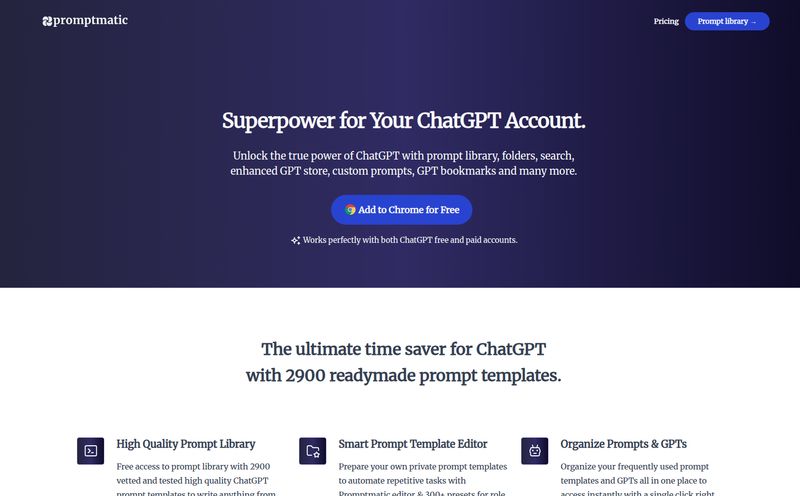The browser space has gotten... crowded. For years, it was a comfortable three-horse race between Chrome, Firefox, and whatever Microsoft was pushing that week. Then came the insurgents: Brave, Vivaldi, Arc, SigmaOS. Each one promised a revolution, a new way to tame the chaotic beast that is the modern internet. And as an SEO guy, I've tried them all. My MacBook's application folder is a graveyard of abandoned browsers.
So when I heard about another one, Aquin Lucid, I’ll admit I rolled my eyes a little. Billed as an “AI-powered browser,” it sounded like more of the same AI-washing we're seeing everywhere. But I'm a sucker for new productivity tools, so I downloaded it anyway, expecting to uninstall it within the hour.
Spoiler alert: It’s still on my dock. And I think it might just stay there.

Visit Aquin Lucid
So, What on Earth is Aquin Lucid?
In a nutshell, Aquin Lucid isn’t just a new coat of paint on the same old Chromium engine. The developers, Team Aquin, seem to be trying to fundamentally rethink how we interact with information online. Instead of seeing the browser as a simple window to the web, they see it as an active partner in your work. A collaborator.
They’re not just building a browser; their stated goal is to create a “new genre of application” that merges AI, productivity tools, and a focus on simplicity. It sounds lofty, I know. But after using it, it feels less like marketing fluff and more like a genuine mission statement. It’s a browser built for thinking, not just for clicking.
My First Spin: A Breath of Fresh Air (and Less RAM)
The first thing I noticed was… nothing. And I mean that in the best way possible. There was no whirring fan, no sudden spike in my activity monitor. Aquin Lucid is surprisingly lightweight. We’ve all been there—20 Chrome tabs open, your computer starts to sound like it’s preparing for takeoff, and you can practically feel your RAM crying for help. Lucid feels snappy and responsive, even with a bunch of tabs running.
The interface itself is clean, almost spartan. The “Zen Mode” with its dynamic lighting is a nice touch, subtly shifting the mood as you work. It’s designed to minimize distractions, to create a calm space where you can actually focus on the content, not on the twenty-seven buttons and extensions screaming for your attention. It’s a quiet confidence that I really appreciate.
The Magic Tricks: AI Features That Genuinely Save Time
Okay, here’s the core of it. The “AI” in Aquin Lucid isn't a gimmick. These aren't parlor tricks; they're thoughtfully integrated tools that solve real, everyday frustrations for people who live on the web. People like me.
You Can Literally Talk to Webpages
This is the feature that made me sit up straight. You can open any webpage—a dense Wikipedia article, a long-form blog post, a technical document—and just start asking it questions. It’s like having a hyper-intelligent research assistant who has already read and understood everything on the page.
For my SEO work, this is incredible. Instead of CTRL+F-ing my way through a competitor's 5,000-word article to find their main arguments, I can just ask, “What are the key takeaways from this text?” or “Summarize the section on backlink strategy.” The AI digests the content and gives me a concise, accurate answer. It feels like magic. Its cut my research time on certain tasks by, and I am not exaggerating, half.
An AI Search That Doesn't Just List Links
Google is great for finding things. But Aquin Lucid’s AI search is designed for understanding things. When you perform a search, it doesn’t just dump a list of blue links on you. It can synthesize information from multiple sources, pull out key data points, and even, get this, generate charts and graphs on the fly.
Imagine researching search volume trends. Instead of exporting data to a spreadsheet and building a chart yourself, you could just ask the browser to visualize it for you right there in the search results. This shifts the browser from a passive content viewer to an active data analysis tool. For anyone in marketing, finance, or research, the potential here is massive.
Little Productivity Boosts That Add Up Big
Beyond the headline acts, Lucid is peppered with smaller features that sand down the rough edges of daily web use. My personal favorite is the AI Tab Titles. I am a tab hoarder. It’s a problem. I’ll have five Google Docs open, all with the default “Untitled document” title. Lucid’s AI renames them based on the content, so I can see at a glance which tab is which. It’s a small thing, but it’s a huge quality-of-life improvement.
Then there's VOCR, which lets you upload anything—a screenshot, a PDF, a random image—and have the AI analyze it for you. Or the integrated Clipboard Quick Access that makes copy-pasting between sources a breeze. None of these alone is a reason to switch browsers. But together? They form a cohesive, productivity-focused experience that makes you wonder how you put up with the old way for so long.
Who Should Actually Download This Thing?
The website for Aquin Lucid lists target users like programmers, designers, and researchers. And yeah, they'd love this. But I think the audience is broader.
Honestly, this browser is for the information worker. If your job involves sifting through large amounts of text, synthesizing data, or just trying to keep a dozen project tabs organized, you will find something to love here. I'm talking about:
- Content Creators & SEOs: The research capabilities are second to none.
- Students & Academics: Imagine talking to your assigned readings. Game-changer.
- Project Managers: Keeping track of multiple documents and resources just got way easier.
- Curious Minds: Anyone who falls down rabbit holes of information and wants a better shovel.
It’s for people who see the browser as their primary workspace, not just a content consumption device.
Okay, But It's Not Perfect. Let's Be Real.
I'm excited about Lucid, but I have to keep my professional hat on. It's not a perfect product, at least not yet. This is a new peice of software, and with that comes a few caveats.
First, it's new. That means you might run into the occasional bug or weird quirk. The team seems to be pushing updates regularly, but you're an early adopter here, and you have to be okay with that. Second, there's a learning curve. To get the most out of Lucid, you have to actively change your browsing habits. You have to remember to talk to the webpage instead of skimming it, to use the AI search instead of just defaulting to Google. It takes a conscious effort to break old patterns. Finally, the features are still evolving, which is both a pro and a con. The browser could get even better, or a feature you love might get changed or removed. It's the wild west a little bit.
The Million-Dollar Question: What's the Price?
As of right now, there's no public pricing information available for Aquin Lucid. This is pretty common for software in this early stage of development. They're likely focused on building the user base and refining the product before figuring out a monetization strategy. My guess? We'll probably see a freemium model, with a robust free tier and a Pro version that unlocks more advanced AI capabilities. For the most current information, I’d recommend joining their community or booking a call through their website.
Frequently Asked Questions about Aquin Lucid
- Is Aquin Lucid just another version of Chrome?
- No. While many alternative browsers are built on Chromium (the open-source project behind Chrome), Aquin Lucid is focused on creating a unique user experience with deeply integrated AI features that you won't find in a standard browser.
- Is my data safe with Aquin Lucid?
- One of Lucid's selling points is a focus on privacy. According to their materials, they prioritize local data storage, meaning more of your information stays on your machine rather than being sent to the cloud. As always, it's good practice to review the privacy policy of any software you use.
- How is Aquin Lucid different from Arc or SigmaOS?
- While all three are part of the "new wave" of productivity browsers, they have different philosophies. Arc is heavily focused on space management and visual organization. SigmaOS is about workflow and treating tabs like tasks. Aquin Lucid's main differentiator is its deep, direct integration of conversational AI as a core part of the browsing and search experience.
- What platforms is Aquin Lucid available on?
- You'll need to check their official website for the latest platform support. Most new browsers tend to launch on macOS first and then expand to Windows and other operating systems.
- Can I import my bookmarks and passwords?
- Most modern browsers include tools to easily import your data from Chrome, Firefox, or other browsers. It's a standard feature these days, and it's likely Lucid offers a straightforward way to do this to ease the transition.
- Is it difficult to learn?
- The basics are as easy as any other browser. The challenge isn't in learning the tool, but in un-learning your old habits to take full advantage of the new AI features.
The Final Verdict: Is Aquin Lucid Worth the Switch?
So, here’s my final take. Aquin Lucid isn't just another browser. It feels like a glimpse into the future of how we'll interact with the internet. It's a tool that wants to help you think, create, and understand, not just consume.
Is it for everyone? Probably not. If you’re perfectly happy with your current setup and hate change, you can probably sit this one out. But if you’re a productivity nerd, a professional researcher, an information junkie, or just someone who feels a little bit overwhelmed by the chaos of the web… you owe it to yourself to give Aquin Lucid a try. It’s one of the most exciting pieces of software I’ve used all year, and for the first time in a long time, I'm genuinely excited to see where my browser goes next.



